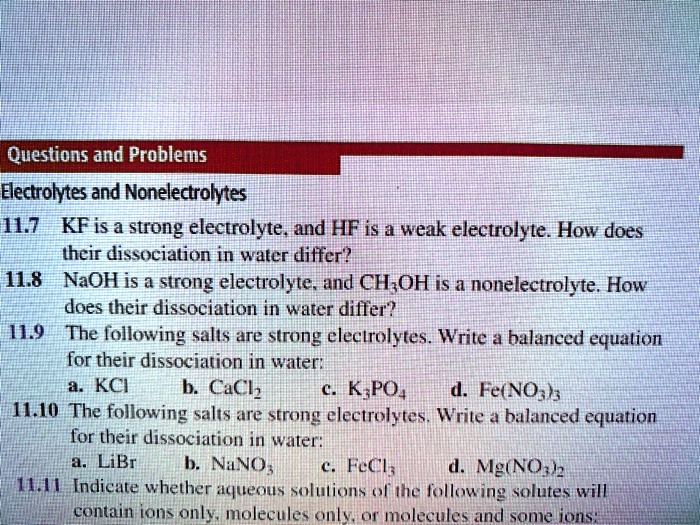· nh3 is a weak electrolyte, so it partially dissociates in solution and has lower conductivity. When nh3 dissolves in water, it undergoes a partial ionization to produce ammonium ions (nh4+) and … To tell if nh3 (ammonia) is an electrolyte or non-electrolyte we first need to know what type of compound we have. · key takeaways: · nh3, or ammonia, is a weak base and therefore a weak electrolyte. Is nh3 a strong electrolyte? Even though nh3 is an base, it is a weak base and therefore a weak. Briefly explain why one is a weak electrolyte and the other is a nonelectrolyte. · at the end of my first post on section 4 — types of chemical reactions and solution stoichiometry, we introduced strong electrolytes, weak electrolytes, and … This then should extend to kcl (regardless of the … Instead, it reacts with water to form a small amount of ammonium ions (nh₄⁺) … Both nh3 and c12h22o11 are soluble molecular compounds, yet they behave differently in aqueous solution. · ammonia (nh₃) is classified as a weak electrolyte because it does not completely ionize in water. Pearsons brown textbooks defines a strong electrolyte as solutes that exist in solution completely or nearly completely as ions. It does not dissociate into ions in water, but instead reacts with water to form ammonium ions (nh4+) and hydroxide ions (oh-), a … Ammonia (nh3) is a weak electrolyte because it only partially dissociates into ions (nh4+ and oh-) when dissolved in water. Ammonia (nh3) is a weak base, not a weak electrolyte. The solutions of electrolytes are overall electrically neutral, i. e. , the number of equivalents of cations is equal to the number of equivalents of anions in the solution.
Electrolytes The Nh3 Case What You Should Know
· nh3 is a weak electrolyte, so it partially dissociates in solution and has lower conductivity. When nh3 dissolves in water, it undergoes a partial...




